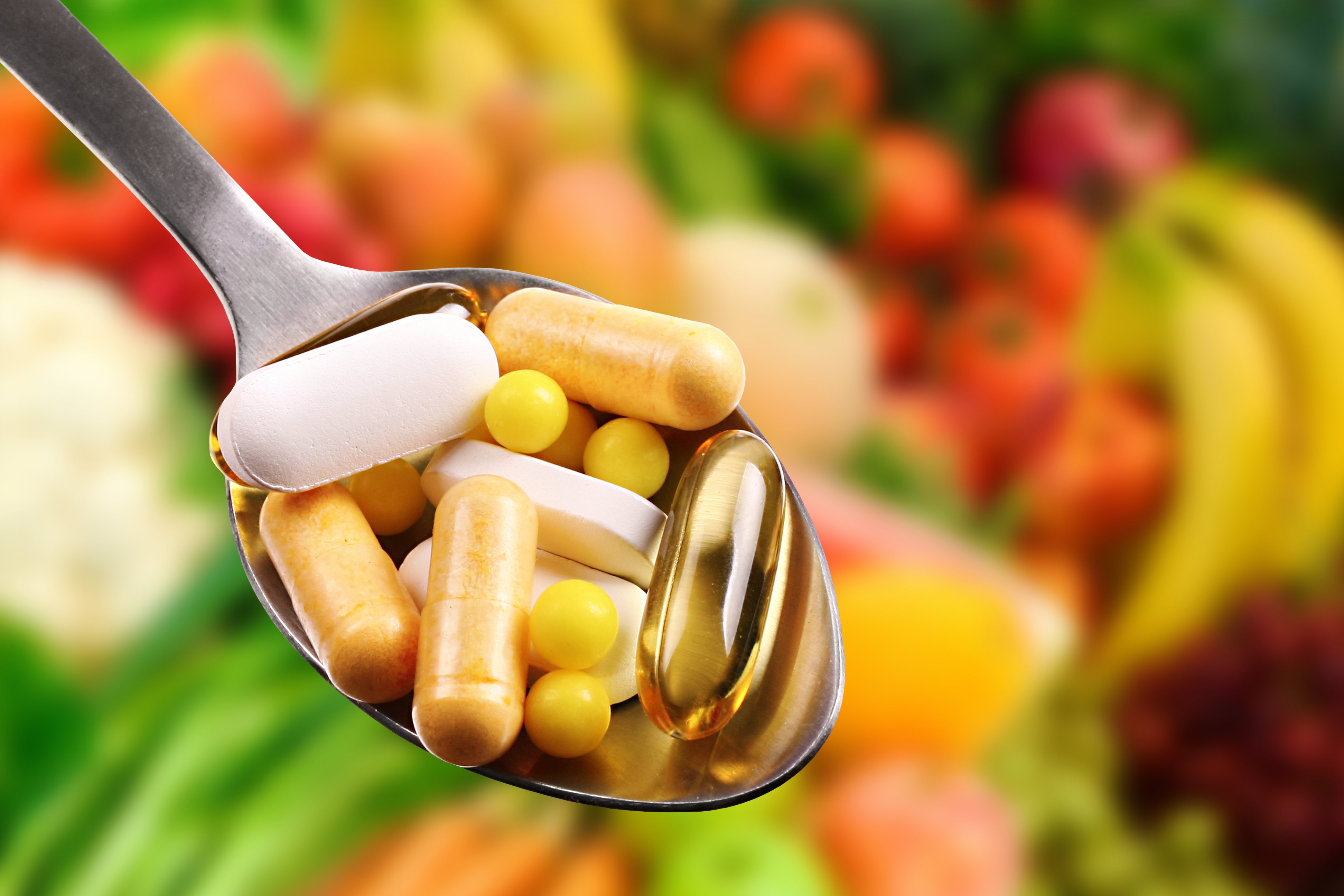5 Supplements to Take Daily

Some nutrients are difficult to obtain in sufficient quantities from diet alone, so supplementing with these may help you get what you need. Check with your health-care practitioner before starting any supplement.
1 | Probiotics and Prebiotics. Probiotics are healthy bacteria that improve the health of your brain and gut, systems that are responsible for making more than 30 neurotransmitters, including serotonin. Probiotics can be obtained through some foods, such as kefir, miso and fermented vegetables, as well as probiotic supplements. The trillions of bacteria that live inside your body are fed by prebiotics, which you can get from foods with indigestible fibers, such as Jerusalem artichokes, asparagus, oatmeal, chicory, barley, garlic, under-ripe bananas, jicama and legumes.
2 | Vitamin D. Low levels of vitamin D have been associated with mood disorders and PMS symptoms. A study published in the Journal of Pediatric and Adolescent Gynecology that involved females with severe PMS symptoms found that the group that supplemented with vitamin D experienced decreased anxiety and irritability, reduced incidences of crying and sadness, and better relationships.
3 | Omega-3 fatty acids. Your brain is at least 60% fat, which is why it’s important to consume enough healthy fats, such as the omega-3s eicosapentaenoic acid (EPA) and docosahexaenoic acid (DHA). These fats improve neurotransmitter activity by helping brain cells communicate. They are also known to reduce inflammation that can damage brain cells. The best food source of EPA and DHA is fish, specifically wild salmon, wild halibut, sardines, mackerel, herring and tuna. Some plant sources, such as flax, chia and walnuts, contain alpha-linolenic acid (ALA), a different type of omega-3 that is poorly converted to the active forms of EPA and DHA. If you don’t eat many of the fish listed above, consider an omega-3 supplement, but find a high-quality brand, refrigerate it to prevent rancidity and take it with a meal containing fat for better absorption. The recommended dose is 1 to 3 grams of omega-3s (containing both EPA and DHA) daily.
4 | Magnesium. It’s referred to as the “king” of minerals since it plays a role in most reactions in your body. A low level of magnesium is associated with depression and anxiety. Magnesium can also prevent stress hormones like cortisol from entering your brain. Consuming a diet rich in magnesium (from leafy green vegetables, nuts, seeds and whole grains) as well as a magnesium supplement can restore levels back to normal and help reverse depression symptoms. Depending on your age, the recommended dietary allowance (RDA) for magnesium is 310 to 320 milligrams a day for women and 400 to 420 milligrams a day for men. However, most people are magnesium deficient due to a high amount of processed food in the diet and would benefit from intakes higher than what is recommended in order to replenish the body’s magnesium stores.
5 | GABA & 5-HTP. GABA is a calming neurotransmitter that can promote relaxation and sleep. Lack of GABA can cause restlessness and insomnia. Foods that increase GABA levels are almonds, bananas, brown rice and lentils. 5-HTP is a precursor to tryptophan, which produces serotonin. Both GABA and 5-HTP supplements have been used to treat insomnia. If you currently take an SSRI for depression, ask your doctor if supplementing would be beneficial.